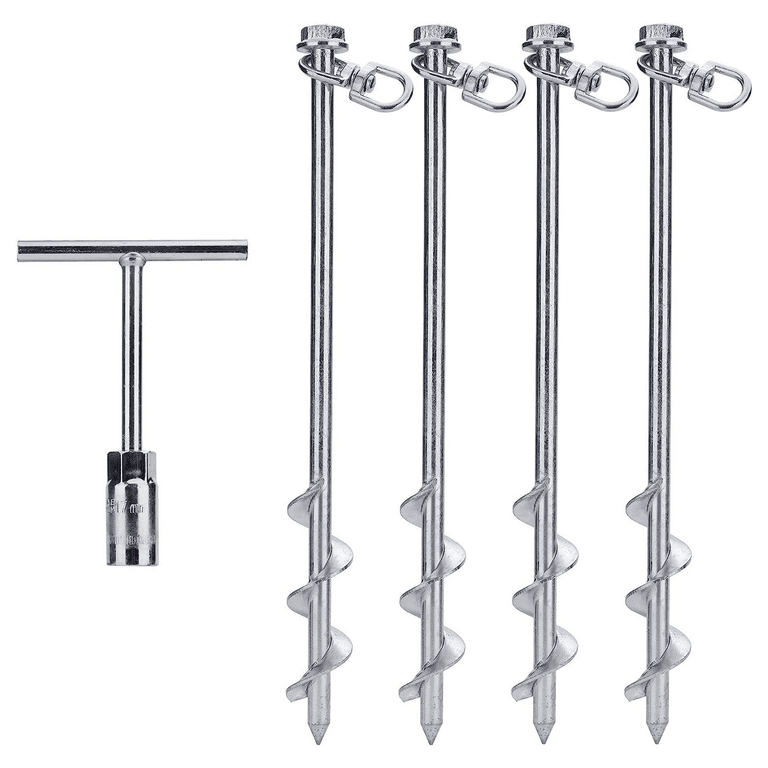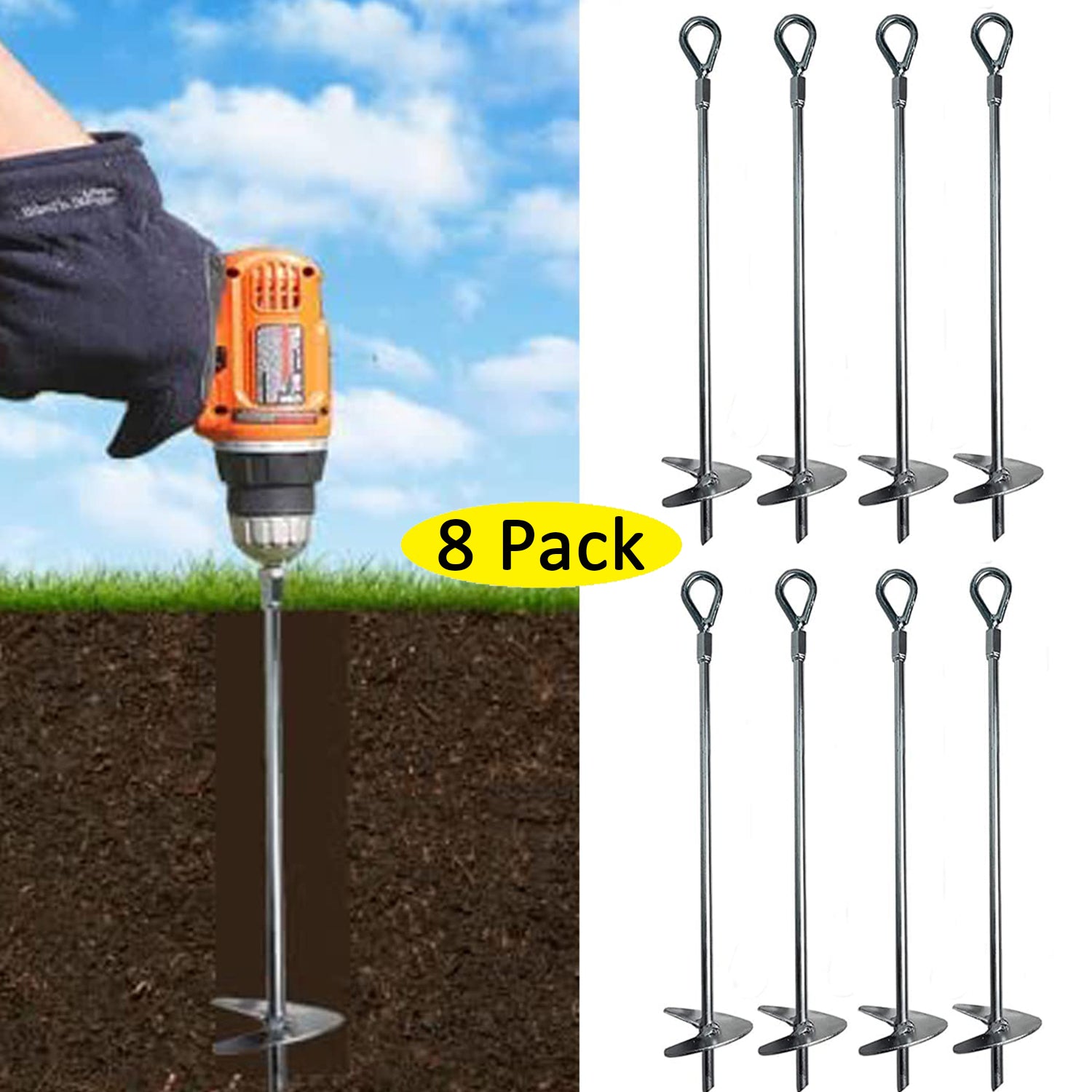Must-Have Qualities to Consider When Buying a High-Quality Ground Anchor
Must-Have Qualities to Consider When Buying a High-Quality Ground Anchor
Blog Article
Explore the Various Kinds of Ground Anchor for Your Next Job
From auger supports, which excel in varied dirt conditions, to stake supports developed for short-term setups, the options are many. Furthermore, concrete and screw anchors existing special benefits in specific situations, while deadman supports are customized for applications requiring resistance to side pressures.

Auger Anchors
Auger supports are a preferred option in numerous construction and landscaping tasks because of their one-of-a-kind style and reliable anchoring capacities. These anchors contain a helical screw-like shaft that is driven right into the ground, enabling for a safe and secure and steady hold. The spiral layout assists in easy installment and optimizes resistance against lateral forces, making auger anchors specifically effective in applications such as fencing, short-lived structures, and erosion control.
The installment procedure of auger anchors is reasonably uncomplicated. Auger supports can be easily eliminated and reused, which includes to their cost-effectiveness and sustainability.
One of the substantial benefits of auger supports is their ability to distribute lots equally across the surrounding dirt, lowering the risk of soil disruption and decreasing environmental impact. Furthermore, they are much less vulnerable to heaving or loosening gradually compared to typical anchoring methods. Auger anchors are an outstanding option for tasks requiring trustworthy and durable anchoring services.

Stake Anchors
When it pertains to protecting frameworks in a selection of exterior applications, risk supports use a straightforward and trustworthy solution. These supports are normally created from sturdy products such as steel or light weight aluminum, designed to stand up to environmental tensions while supplying optimal security. Their basic layout enables fast installment, making them an ideal option for short-term or irreversible anchoring demands.
Stake supports are particularly useful in protecting camping tents, covers, and other lightweight structures against wind and weather condition. They work by being driven into the ground at an angle, developing a strong hold that resists pull-out pressures - Ground Anchor. The effectiveness of risk supports relies on a number of factors, consisting of soil type, dampness web content, and the angle of setup
For added protection, many stake supports come with accessory factors for straps or ropes, enabling stress changes as essential. In applications such as landscaping or construction, they can properly stabilize equipment or structures on unequal surface. In general, stake anchors provide a cost-efficient and versatile service for securing various outdoor setups, making them a favored choice for contractors and DIY fanatics alike.
Concrete Anchors
Concrete anchors provide a robust option for safeguarding frameworks to concrete surface areas, making sure stability and safety in different applications. These supports are essential for projects ranging from residential building and constructions to large-scale industrial installments. They come in various types, consisting of development anchors, glue anchors, and undercut supports, each developed for specific tons needs and environmental conditions.
Glue anchors utilize high-strength epoxy or resin to bond the anchor to the concrete, using superior load-bearing abilities, especially in cracked concrete circumstances. Undercut supports produce a special form within the concrete, offering extraordinary holding power, specifically in applications where tensile tons are prevalent.
Selecting the suitable concrete anchor entails taking into consideration linked here variables such as the weight of the lots, the condition of the concrete, and environmental problems. Appropriate setup strategies are vital to make sure optimum performance and reliability. When executed properly, concrete supports substantially enhance the structural stability of various projects, making them vital in contemporary building and construction techniques. Comprehending the specific requirements of your project will aid in selecting the appropriate kind of concrete support for the job.
Screw Anchors

Screw anchors are a functional fastening solution that can be efficiently utilized in a variety of applications where standard concrete anchors may not suffice. These anchors consist of a helical design that permits them to be easily driven into the ground, making them perfect for usage in dirt and have a peek here various other substrates. Their unique structure provides superb holding power and resistance to pull-out pressures, making them suitable for countless tasks, from landscape design to architectural support.
One of the key benefits of screw anchors is their ease of installment. They require marginal devices and can usually be mounted without the demand for excavation, which conserves both time and labor expenses. In addition, screw supports can be eliminated and reused, anchor supplying a sustainable solution for momentary applications.
Screw anchors are particularly valuable in areas where soil problems are challenging, such as sandy or loose soils. Their capacity to be mounted at varying depths permits customization based on particular job requirements. Generally, screw anchors give a efficient and reputable anchoring approach, making them a superb selection for engineers and specialists looking for reliable options for their jobs.
Deadman Anchors
Deadman supports serve as a durable service for supporting structures in difficult problems, specifically where typical securing techniques may fail. These anchors contain big, heavy items hidden underground, which develop resistance against lateral forces. The design normally includes a horizontal part, such as a block of concrete or a steel plate, hidden in the dirt, to which bands or cords are connected.
The performance of deadman supports hinges on their ability to distribute loads over a bigger location, decreasing the danger of failure in unsteady soil conditions. They are especially beneficial in applications such as retaining wall surfaces, temporary frameworks, and slope stablizing, where soil activity can compromise the honesty of the framework.
Installment of deadman supports calls for cautious preparation to ensure they are put at the appropriate deepness and positioning, optimizing their load-bearing ability. While they might require even more labor and product than lightweight supports, their reliability in negative conditions makes them indispensable for long-term projects. Furthermore, deadman supports are versatile and can be adapted to numerous applications, making them a go-to choice for designers dealing with unique challenges in their projects.
Conclusion
In summary, selecting the proper kind of ground anchor is vital for guaranteeing stability and security in numerous tasks. Auger supports excel in diverse dirt problems, while risk supports fit temporary applications. For concrete surface areas, growth and adhesive supports give trusted options, and screw anchors supply flexibility in challenging terrains. Deadman supports are especially efficient in resisting lateral pressures for retaining walls. Careful consideration of these choices will certainly enhance project results and structural stability.
Furthermore, concrete and screw anchors present special benefits in specific scenarios, while deadman anchors are customized for applications requiring resistance to side pressures - Ground Anchor.Auger anchors are a preferred choice in different construction and landscape design jobs due to their unique layout and effective securing capabilities. They come in different kinds, consisting of expansion anchors, adhesive anchors, and undercut anchors, each made for particular tons demands and environmental problems
Adhesive anchors utilize high-strength epoxy or resin to bond the anchor to the concrete, using exceptional load-bearing abilities, specifically in fractured concrete scenarios. In general, screw supports provide a reliable and reputable securing approach, making them an excellent choice for professionals and designers looking for reliable options for their tasks.
Report this page